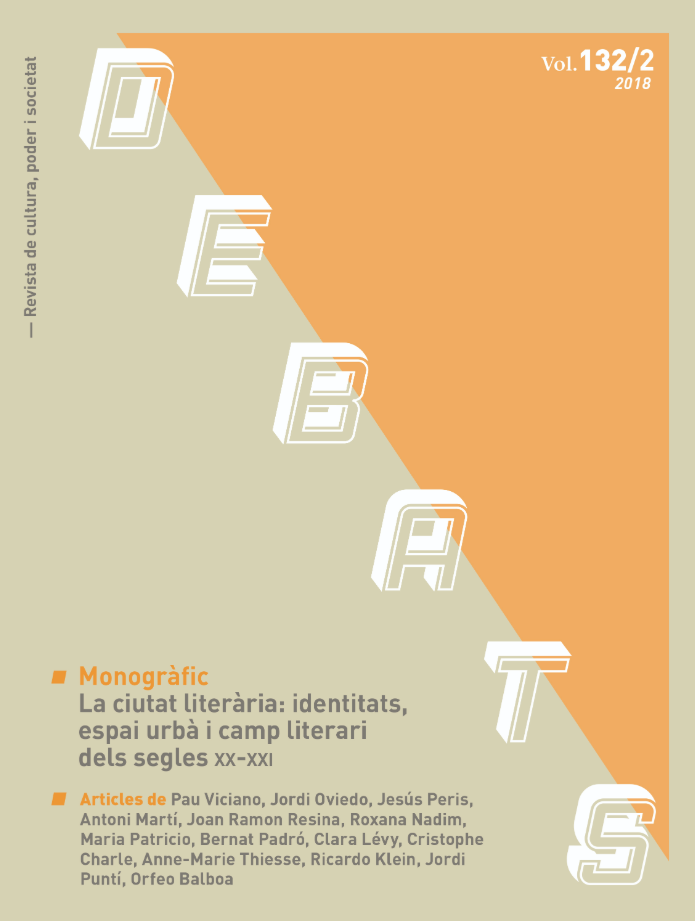The lit city: Valencia in the texts of Max Aub
Keywords:
exilio, memoria, ciudad, Guerra Civil, Segunda República española, literatura española del siglo xx, Valencia, Max Aub.Abstract
The city of Valencia often appears in the works of Max Aub. Sometimes in descriptions of the author’s childhood between 1905–1910, and others—most of the time—during the years of the Spanish Civil War in the El laberinto mágico novels, especially in Campo abierto and Campo de los almendros. In this article I analyse the texture of these representations, what the Valencia he describes is like, which of its features he emphasises, the neighbourhoods his characters inhabit and live, etc. In other words, how Max Aub—from exile—builds a new map of the city, remembering it with surprising precision and linking it to smells, sounds, feelings, and particular people and places. I also observe the contrasts between this city and the real Valencia that he visited in 1969 and which he describes in his ‘Spanish diary’, La gallina ciega. His writing about the impact of this shock gives us insight into the meaning that his imagined city had on his work. Valencia, the illuminated city, traversed by the smell of magnolias and orange blossom, and where the author studied at secondary school, is the scene of the lost paradise of childhood, and also one of a collective project. The map of the lost city is where the Second Spanish Republic became reality, where an imagined community linked to sentimental and family memories, became real. It was there that this collective project came to life and got its emotions, and this is how it appears in his fiction written from exile.Downloads
Downloads
Published
How to Cite
Issue
Section
License
Without prejudice to the provisions of article 52 of Spanish Law 22/1987 of November 11 on Intellectual Property, BOE (official state bulletin) of November 17, 1987, and pursuant to said legislation, the author(s) surrender(s) free of charge its rights of edition, publication, distribution and sale of the article, for its publication in Debats. Journal on Culture, Power and Society.
Debats. Journal on Culture, Power and Society is published under the Creative Commons license system in accordance with the «Recognition - Non-Commercial (by-nc) modality: The generation of derivative works is permitted provided that commercial use is not made. Nor can the original work be used for commercial purposes».
Thus, when the author submits his/her contribution, he/she explicitly accepts this assignment of publishing and publishing rights. Authors also authorize Debats. Journal on Culture, Power and Society to include their work in an issue of the journal to be distributed and sold.











